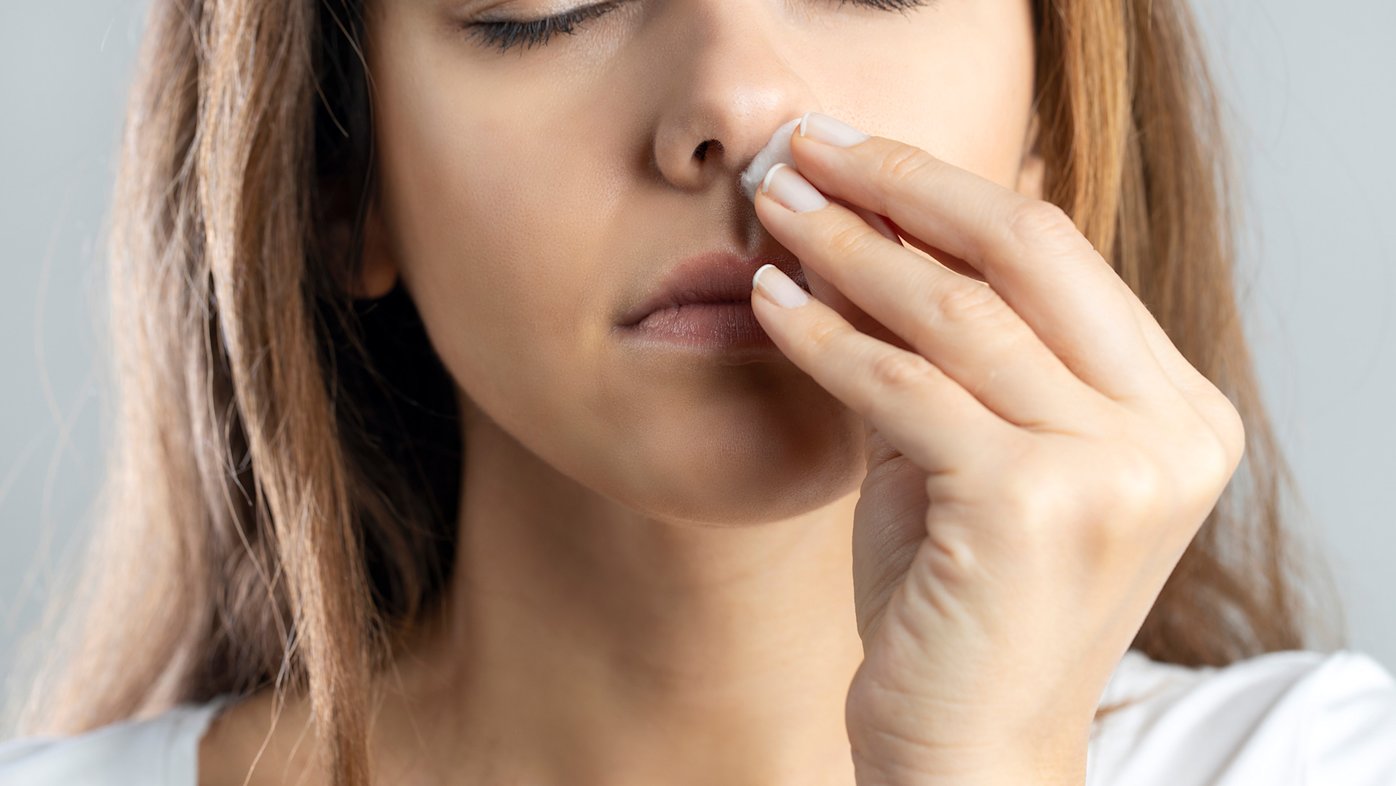
Not again: Preventing chronic nosebleeds
Nosebleeds are a nuisance. Learn why they happen — and what you can do to prevent them.
Passing gas can be embarrassing, but it is perfectly normal. However, there are some factors — and foods — that can cause it to happen more than usual.
“It is true that certain food items are known to be more gas-forming. However, not all foods are created equal when it comes to gas,” says Nicole Herrmann, MS, RD, clinical nutrition manager at Sharp Coronado Hospital. “Some foods that cause gas and bloating for some people don’t affect others, and vice versa. Other things that can elicit gas include eating too fast, drinking through a straw and carbonation.”
Although you’ll never live gas-free — the average person passes gas 13 to 20 times per day — you may want to decrease your intake of trigger foods.
Herrmann shares these five gas-causing culprits:
1. Vegetables
Cruciferous veggies, such as Brussels sprouts, broccoli and cabbage, and vegetables that contain fructose, such as onions and asparagus, can cause gas. If you find yourself experiencing painful gas after eating salad or other vegetables, try eliminating foods one by one until you find your trigger.
2. Sugar-free sweets and some fruits
Sugar-free products are known to contain a class of sugars known as sugar alcohols, which can cause bloating, gas and diarrhea. One of the more common ones is sorbitol, which commonly produces gas and can be found in sugar-free gum, ice cream and candy. However, not everyone has trouble with sugar alcohols, and they actually play a major role in some diabetes-friendly items.
That’s not to say that processed sugar items are the answer. It is important to limit consumption of processed sugars for an array of health reasons. When consumed in appropriate portion amounts, natural sugars — found in fruit and honey — are the best option (health permitting).
3. Dairy products
Some people have difficulty digesting lactose, a compound found in milk and other dairy products. These difficulties arise in people who lack sufficient amounts of lactase — the enzyme in the intestines necessary for breaking down lactose. Insufficient lactase can cause intolerance for items such as milk, ice cream, yogurt and cheese, producing symptoms of gas, bloating, diarrhea and abdominal pain.
If you notice these symptoms after dairy consumption, there are a few things you can try. First, try an elimination diet — cutting out the food you believe to be the offender, and slowly introducing small amounts back into your diet one at a time. However, if you do try an elimination diet with dairy, do not go longer than 30 days without eating dairy because the body stops producing lactase if lactose is not consumed. Once the food is introduced again, if symptoms continue or get worse, you might want to consider limiting or avoiding these products. You can also try an over-the-counter lactase supplement to help your body with lactose breakdown.
4. Legumes
Yes, we all remember that little childhood ditty about the musical fruit. It’s true: the more beans you eat, the more you … well, you know. Beans include both the sugar and the fiber found in trigger fruits and vegetables, meaning they pack an extra punch to the lower intestine. But don’t pass on beans because you’re worried about passing gas. Beans are a great source of protein, as well as heart- and bowel-healthy fiber.
Instead of avoiding legumes, remember to keep portions appropriate. Too much of a good thing can sometimes not be ideal for you or your body. If beans seem to cause excess gas, try to stick to smaller portion sizes, and do not pair them with other gas-forming vegetables (listed above).
5. Sodas and carbonated drinks
No surprise here: what goes in, must come out. Carbonated beverages — especially sugary ones — can lead to bloating, burping and flatulence. And the way you consume soda and other beverages can also make a difference. When you drink from a straw, it can introduce more air into your stomach than sipping it straight from a cup.
While gas is normal, there are more serious sources of excess gas. If you think you may have a digestive disorder, such as irritable bowel syndrome (IBS), ulcerative colitis or Crohn’s disease, be sure to speak with your doctor.
“It is always recommended to speak with your doctor if you have concerns regarding your digestive health. You can also discuss the benefit of a referral to see a dietitian,” says Herrmann.

The Sharp Health News Team are content authors who write and produce stories about Sharp HealthCare and its hospitals, clinics, medical groups and health plan.

Nicole Herrmann is a clinical nutrition manager at Sharp Coronado Hospital.
Our weekly email brings you the latest health tips, recipes and stories.